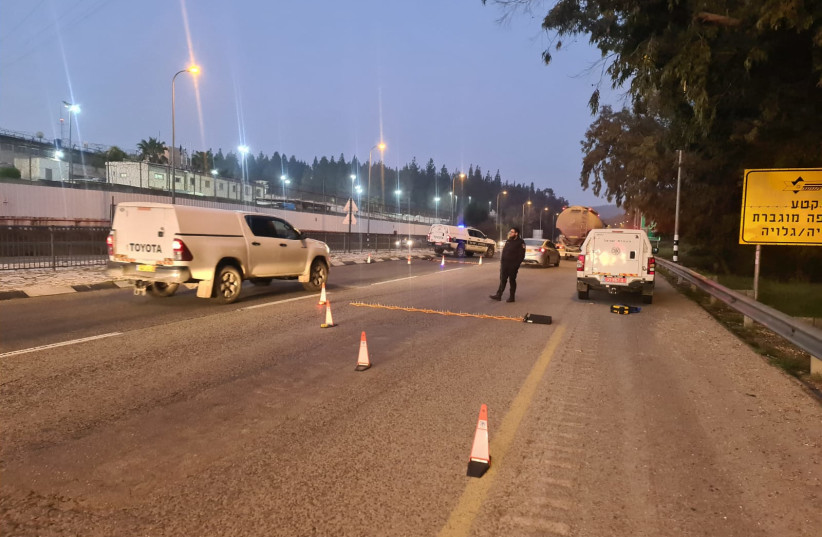The perpetrator of Tuesday’s terror attack in Bnei Brak, Dia Hamarsha, had been working illegally at a construction site in the city.
An eyewitness told Channel 7 News that a nearby building housed dozens of illegal construction workers, and Hamarsha could very well have chosen that spot for the attack simply because he worked there. Residents in the area constantly complained about the illegal workers, but the police did not take action, the eyewitness said.
In 2020, 80,000-90,000 Palestinians officially worked in Israel, and 30,000-40,000 in Israeli settlements. The International Labor Organization estimated that around 26,000 Palestinians worked illegally in Israel and the settlements.
An investigation by N12 reporter Gilad Shalmor in December found that tens of thousands of Palestinians from the West Bank enter Israel daily through holes in security fences, and the IDF largely turns a blind eye.
How did this come to be?

According to Israeli law, Palestinians from the West Bank who wish to work in Israel need to possess a permit known as a Tasrih, which allows them to cross into Israel and work. Employers are also required to obtain permits in order to employ them.
It is illegal to employ, house or transport workers without a permit, but the punishments for these offenses are usually not harsh and do not include jail time.
The work permits are distributed by the District Coordination and Liaison, a branch of COGAT, the IDF’s Coordinator of Government Activities in the Territories, and are strictly regulated in order to ensure that terrorists are kept out.
Until 2016, each worker’s permit was linked to a specific employer. This led to widespread exploitation by mediators and a black market to obtain permits.
The government decided in 2016 on a reform that would allow workers to switch jobs, and prohibited them from being hired by employment agencies. However, the reform was not enforced until September 2020 after civil rights NGOs turned to the High Court of Justice. To date, it has been implemented for workers in the construction sector alone, who are estimated to constitute 75% of the total number.
The problem, however, is that demand far outstrips supply. Palestinians make up the bulk of Israel’s construction workers, and higher employment rates of Palestinians in the West Bank usually translate into less terror.
This leads to absurd situations where the IDF turns a blind eye, but the police are forced to allocate resources to chase them down.
The issue is not new, but a solution is not in sight. In police operation “Peak 1” that took place between March 9 and 11, nearly 6,000 border police officers arrested 678 people involved in the illegal Palestinian labor market, including 584 workers, 76 people suspected of transporting them, 11 employers and seven hosts.
Peak 1 was part of a larger campaign called “Safe Track,” which was launched in October to decrease crime in the Arab sector.
In the wake of Tuesday’s attack, the police arrested another 49 Palestinians illegally in Israel on Wednesday, and began criminal investigations against three business owners who employed them, and against drivers of four vehicles being used to transport them.
Defense Minister Benny Gantz was asked at a news conference on Wednesday whether Israel did not do enough to solve the issue. Gantz promised to work to close the gaps in the fence, but framed it as part of the general effort to close off Israel’s borders and not as a unique problem, indicating that a serious policy reassessment was not in the offing.
